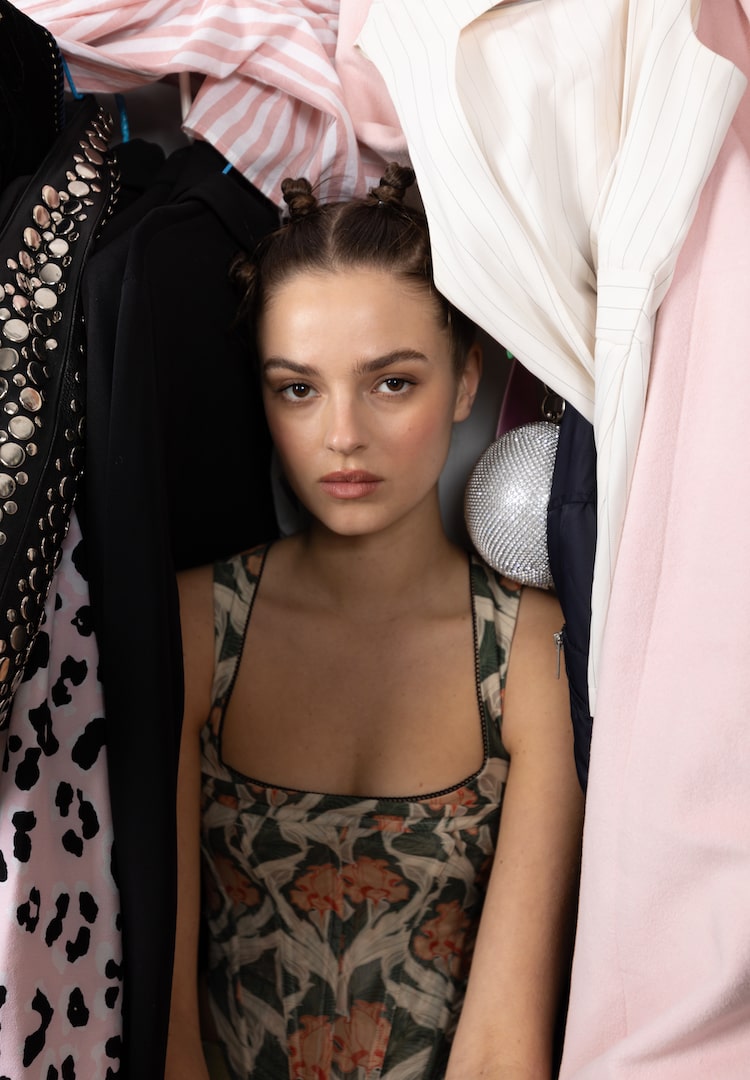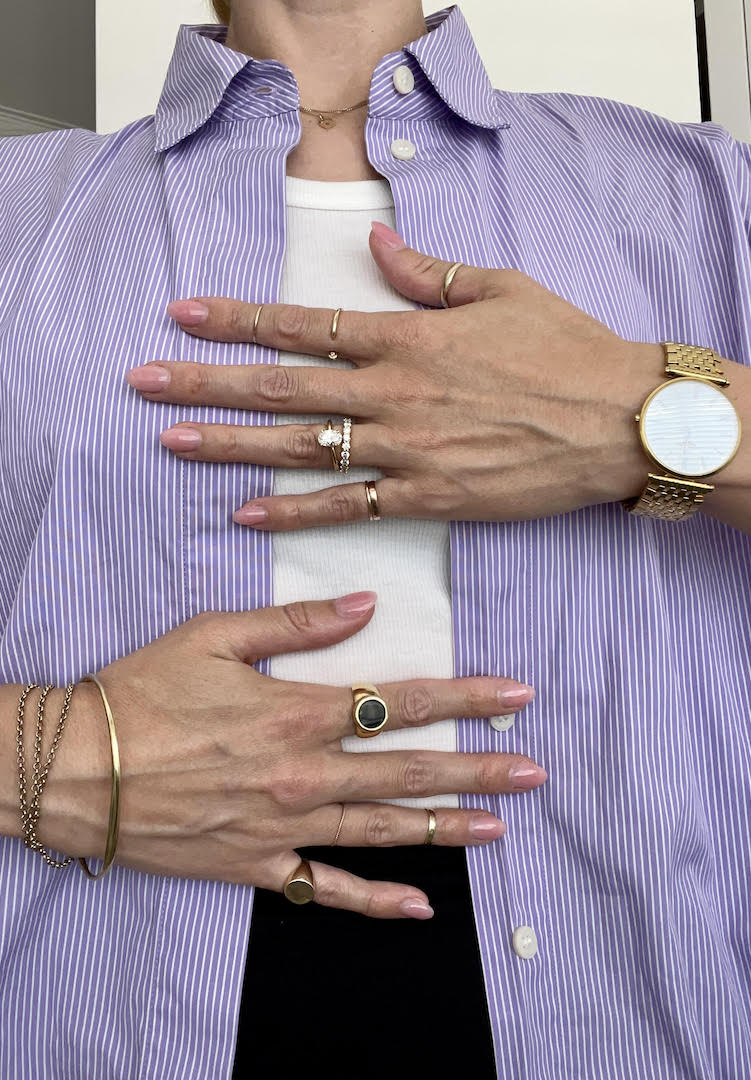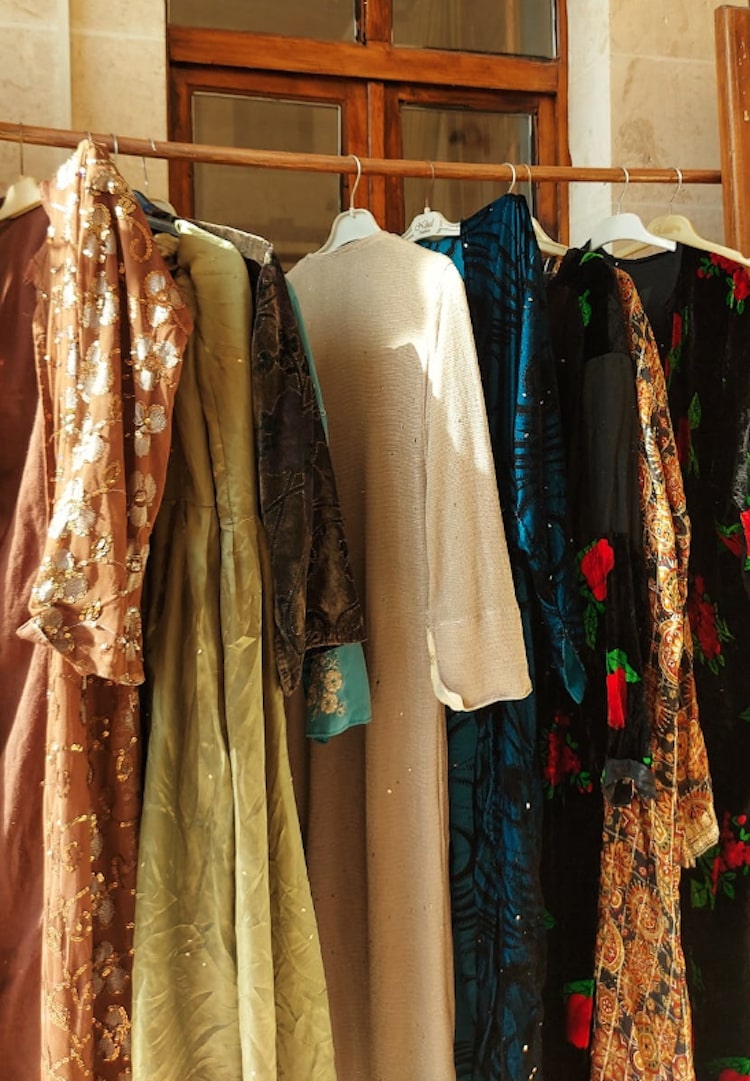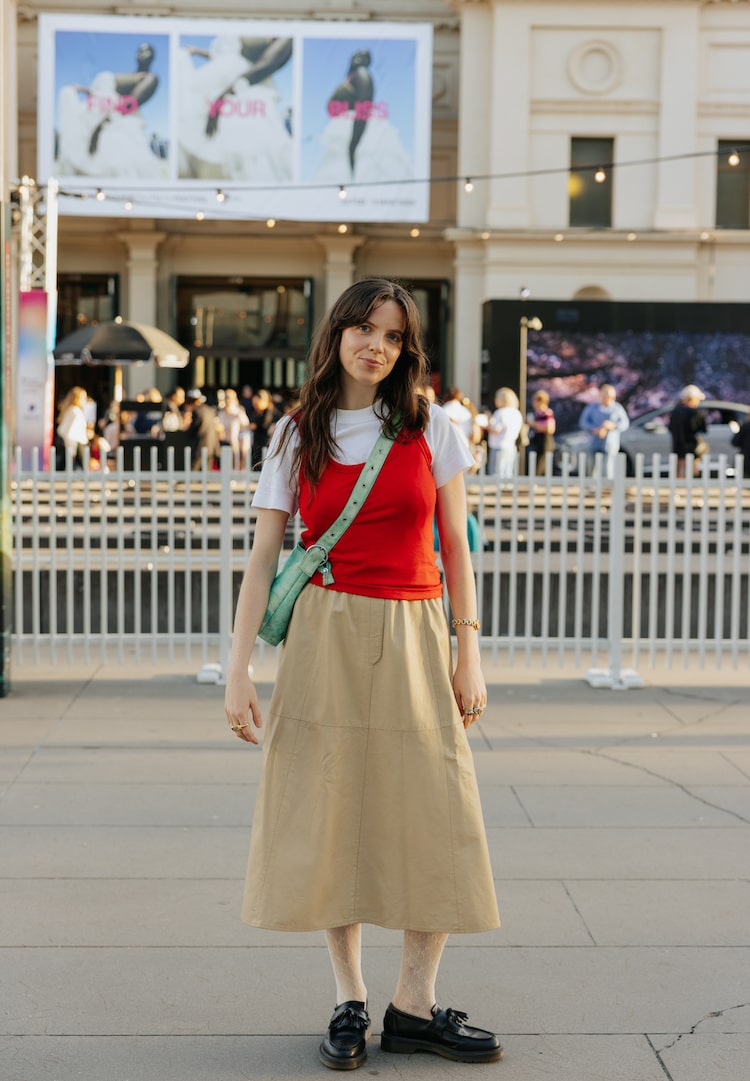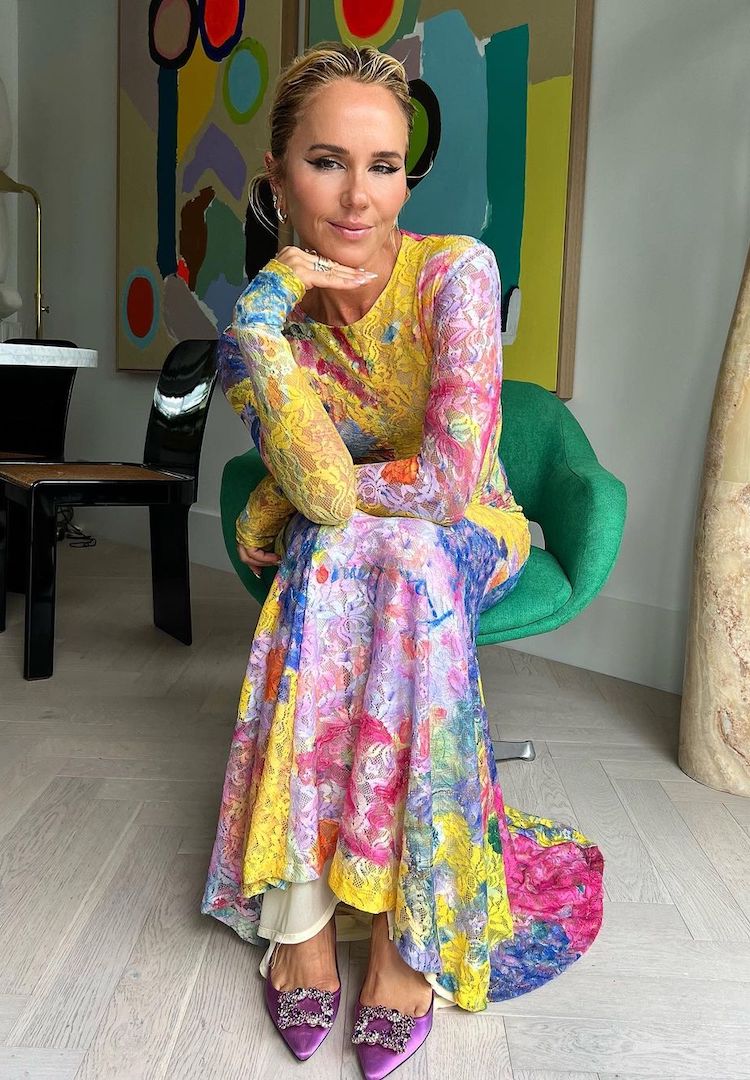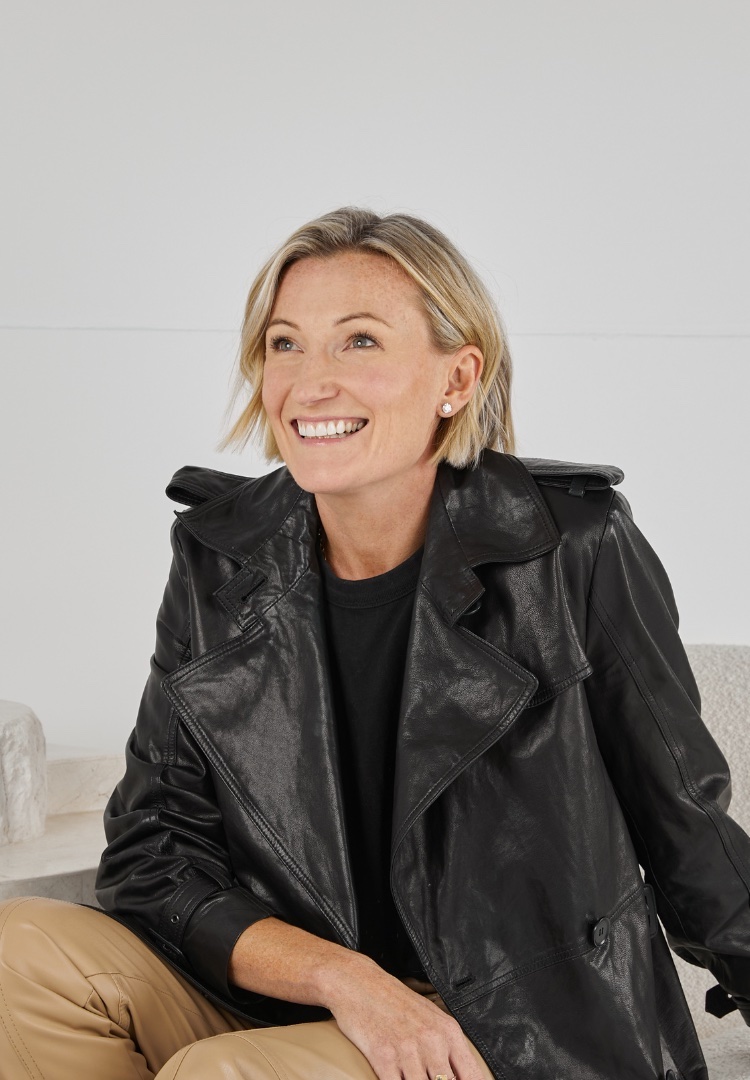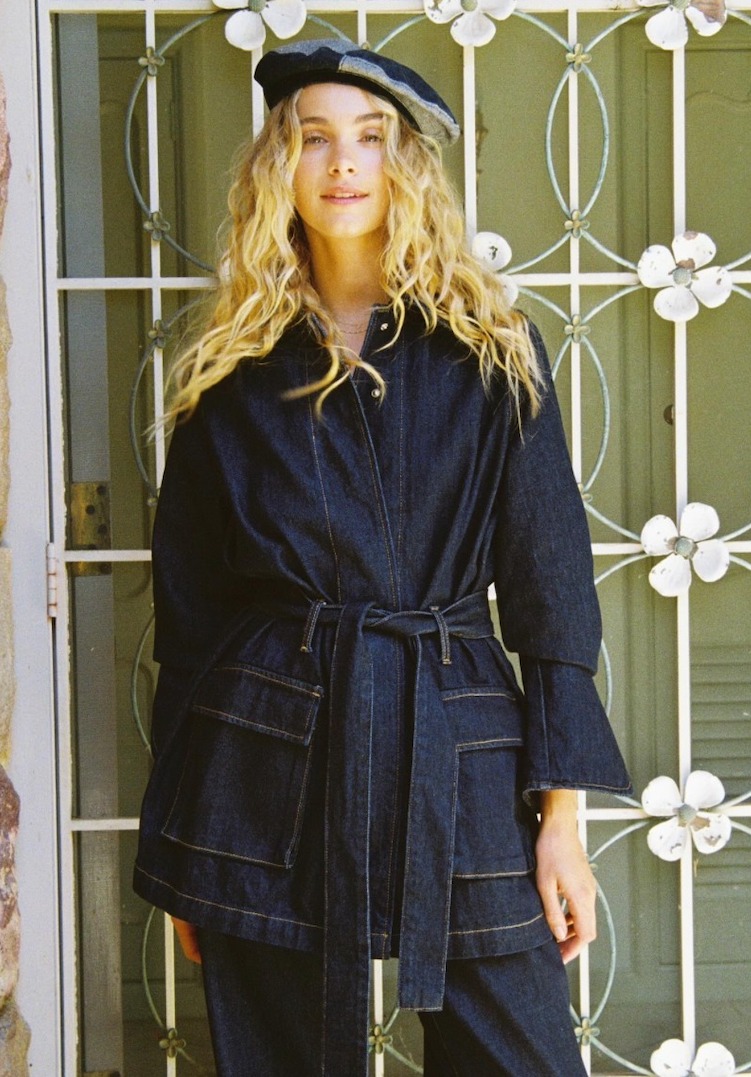Thinking about starting your own fashion label? A fashion lawyer on what to consider
Photography by BIUNCA GUILFOYLE
Words by Chloe Taylor
Starting something new can be exciting, but also daunting.
If you love fashion, chances are you’ve thought about starting your own fashion brand. Who could blame you? The fashion industry is full of creative energy, glitz, glamour and fun.
For more fashion news, shoots, articles and features, head to our Fashion section.
It would be incredible to own and wear your own personally created clothing. But, like most successful small business ideas, starting a fashion brand is hard work. Let’s discuss the steps you should take and what to keep in mind when deciding whether you should turn your dream into a business.
Do your market research
Research doesn’t just mean looking for the latest fashion trends on TikTok (although that’s part of it). You will need to consider what your point of difference is. Why would your customers buy your product over other brands? What is your market differentiation and what’s the drawcard to your brand?
Create a business plan
It may not sound glamorous, but a business plan is what starts the process of making your dream a reality. A business plan sets out the goals, targets and timelines for you to monitor your brand’s achievements. At a minimum, a business plan should include your business structure, a comparative analysis of your competitors, target markets, branding strategy, marketing and sales strategy, cost of production, financial projections and cash flow.
You don’t need anything fancy, just an excel spreadsheet will do. A business plan should be updated yearly and will motivate you to proactively monitor how your brand is tracking each year. It can also be used as a marketing tool for potential investors once you are more well-established.
Work out your finances
Once you have worked through your business plan, you will see how much cash flow is needed to start your brand. You will then need to consider what you can afford. Do you need a bank loan? Can you get an investor? Are you able to use your savings for the first initial order? Note that most manufacturers will require a minimum order of at least 100 items of a product.
Consider how the products will be made
This is another factor that will be included in your business plan. If you have a fashion degree, you may decide to make your own clothing. This will require a lot of time and commitment. You will also need to find equipment and fabric that will fit your budget and creative needs. If you decide to outsource the manufacturing process, you will need to spend more money on larger qualities.
You also need to keep in mind that you need to be very clear about the product you want made by the manufacturer, especially if they are located overseas. Quality control can be a major problem if not managed properly. Alternatively, instead of creating your own products, you may decide to use a fashion wholesaler to purchase your products from.
Keep meetings about your brand confidential
When you start to speak to other people about your brand, whether it’s investors, friends or relatives, you should always use a non-disclosure agreement (NDA). An NDA is a very simple document that makes sure that any conversations you have with other people about your product are confidential. You should never discuss your ideas without being protected from copycats (it happens!).
Protect your intellectual property
Once you design an item of clothing, you have certain intellectual property rights that help protect your brand from imitation within the market. For example, the shape, structure and design features of a Dion Lee dress might be a registered design and the brand’s logo on the label would be a trademark. Registering these rights helps protect the dress from copycats in Australia, but it may not offer protection in other countries unless the design is registered in that country.
Before marketing your designs and creations, you should consider speaking to an intellectual property lawyer about whether you should register a trademark or a design. This will be particularly important when you decide on your brand’s name and logo. The last thing you want to do is launch your business and then see your beautiful creation being sold for a quarter of the price by a competing brand.
Think about your business structure
When you’re ready to start, you need to decide how you want to structure your business. Are you a sole trader? Do you need an ABN? Will you be in partnership with someone else? Are your personal assets protected? The structure doesn’t necessarily need to be set up straight away, but it can be a very expensive mistake if it is not set up properly from the beginning (think tax implications).
Make sure you have the proper contracts
Almost every time you interact with someone on behalf of your brand, whether it be an investor, customer or an influencer you have engaged to promote your product, you should have a written document that protects your brand’s rights.
For example, when engaging an influencer to promote your product online, you should have an agreement that sets out how much they are paid per post, how many times they need to post your product, how they should promote your product, what happens if they change their mind and how and when can you end your agreement.
An agreement will also be important if you decide to go into business with a friend. The type of agreement will be dependent on your business structure but it will generally outline both your roles and responsibilities and in the unfortunate situation that you have a disagreement as to how the brand is to be run, how you manage that disagreement.
Get yourself a business coach, lawyer and/or a mentor
When you’re a creative person and your mind is running a million miles an hour coming up with fabulous concepts and designs that you can’t wait to sketch out, the last thing you want to think about is what legal contracts you need. But just like any other business, fashion is just that, a business, and without proper operational strategies in place, there won’t be much designing for you to do.
You should invest in someone who can do these tasks for you. Find a mentor and a lawyer who believes in your business and understands what you need. These people are out there – don’t be afraid to shop around until you find one that really understands your vision.
Lastly, have fun with the process! Exploring a new venture can be so exciting. Take the time to delve into every creative thought and opportunity. Don’t be afraid to ask those in the fashion industry for guidance. They are your best source of information after all.
For information on the requirements of starting your own business, head here.

